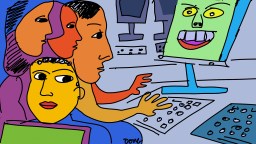Health
All Stories
In a world driven by technological progress, many impoverished communities are bucking the trend by successfully turning to “low-tech” and unorthodox treatments.
Australia could soon ban unvaccinated children from attending preschools nationwide.
A new study from Johns Hopkins University supports making birth control pills available without a prescription.
A “new” field of medicine called chronotherapy demonstrates that following nature’s cycles, as our ancestors did, is integral to proper biological and cognitive function.
A patient’s brain showed activity for nearly 10 minutes after death, baffling doctors and prompting the need for further research.
Scientists identify key compounds that may help prevent brain diseases like Alzheimer’s, Parkinson’s, Huntington’s as well as Lou Gehrig’s disease.
A spoonful of sugar has always made the medicine go down – but shouldn’t we be asking whether we need this type of medication in the first place?
PTSD develops after a person experiences, or is a witness to, a life-threatening or traumatic event — a natural disaster, for example — or is exposed to combat, or sexual […]
Despite decades of research, there is no reliable vaccine for malaria. Dr. Philip Eckhoff lays out the strategies and collaborations required to eradicate this disease and the half a million lives it takes each year.
▸
5 min
—
with
Bill and Melinda Gates lay out the key accomplishments of their philanthropic foundation in response to Warren Buffet.
There’s a trillion-dollar underground economy hiding in plain sight, says Steven Kotler, and it can be measured in dopamine.
▸
3 min
—
with
We know there’s a gut-brain connection, but just how deep does it go? Could we treat depression just by adopting a particular diet?
Dr. Larry Brilliant played a key role in eradicating smallpox from the world – so what are the biggest dangers humanity faces now? Brilliant rates politics as on-par with infectious disease.
▸
5 min
—
with
British doctors eliminate the disease in two infants with incurable cancer by utilizing a medical first gene-editing techniques.
The computer it’s attached to can “see” potential hazards and alert the surgeon to them.
Does a shot of espresso before walking into an exam make a difference?
We’re in an epidemic of mental illness and in an epidemic of misinformation about mental illness. The myth that America is “overmedicated” regarding antidepressants only furthers the stigma that stops people from seeking help.
▸
4 min
—
with
A large new study finds a relationship between consumption of hot red peppers and mortality.
Hilarious examples that prove how correlation does not equal causality.
A new Yale-Harvard study categorizes gun violence as a social contagion and a public health epidemic. If nothing changes, over 33,000 people will die at the end of a gun this year in the United States.
Canadian scientists discover how being bilingual creates advantages for the brain.
Everybody wants to be happy, right? Who wouldn’t try to get as many pleasurable experiences as they could? Well, if this philosopher is right. You wouldn’t.
Just like alcohol, nicotine and other narcotics, sugar tickles our dopamine receptors in just the right way, inspiring our brain’s reward system. How will this end for us?
Scientists are finding that loneliness has real medical consequences, and the brain sees it as pain.
Today, a person’s organs will be harvested, whether or not their family is against it.
Researchers at the American Chemical Society examine whether or not cough medicine has scientific merit.
Is the technology of the future more radical than the technology of the past? Alison Gopnik provides some historical perspective.
▸
5 min
—
with
Scientists create a portable device that can detect 17 diseases, including 8 different cancers, straight from a person’s breath.
Animal-assisted therapy is increasingly being used nowadays. But does this practice make an impact?
One reason: women perceive men with tattoos as more likely to cheat.





























